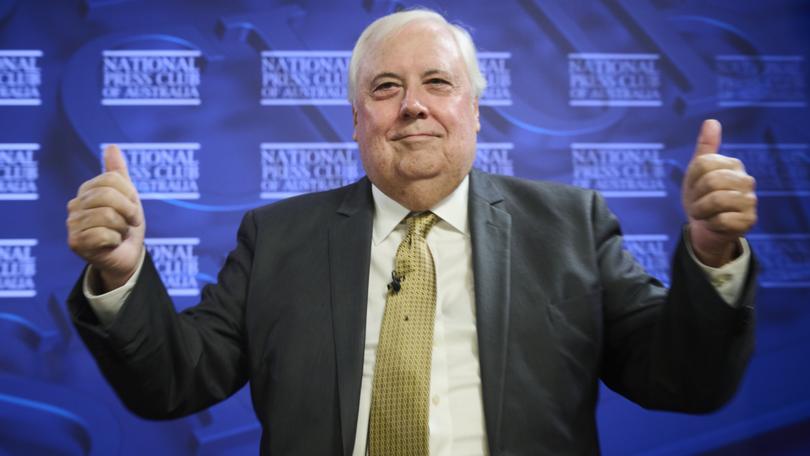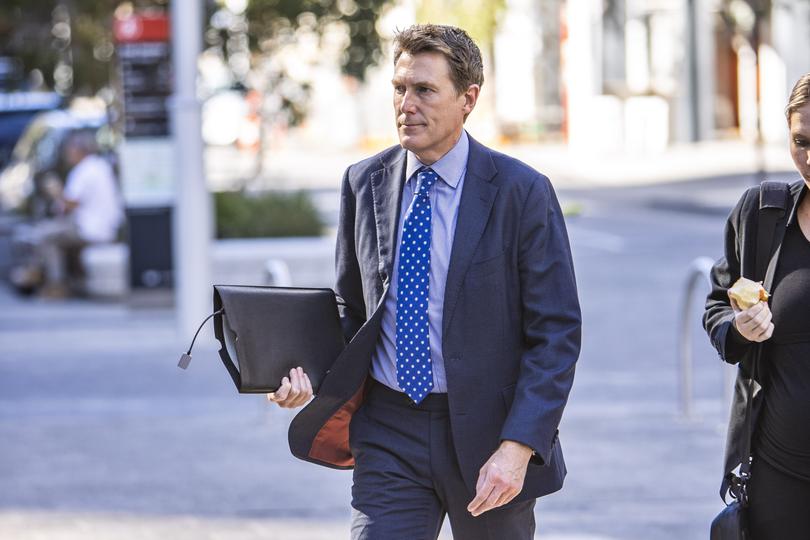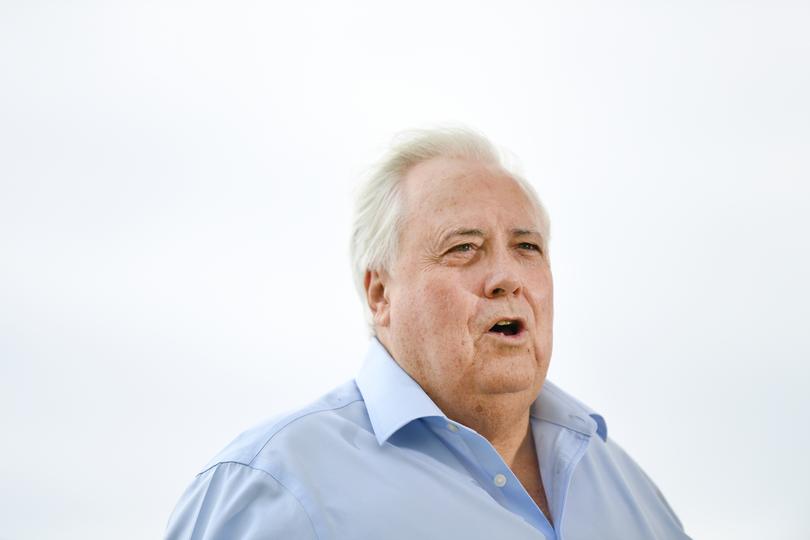Clive Palmer’s company accuses government of email hack in $300b lawsuit
Clive Palmer’s company has accused the Government of attempting to hack the email accounts of lawyers working on his $300 billion lawsuit against the country, and sought to silence Labor MP Josh Wilson.

Clive Palmer’s company has accused the Federal Government of attempting to hack the email accounts of lawyers who are working on his $300 billion lawsuit against the country.
Singapore-based Zeph Investments, owned by Mr Palmer, also tried to use the international court to gag Labor MP Josh Wilson from speaking about the trade rule the company is using to sue Australia.
And court documents reveal that Christian Porter has now given evidence on behalf of the company in the dispute that was first flagged while he was attorney-general.
Sign up to The Nightly's newsletters.
Get the first look at the digital newspaper, curated daily stories and breaking headlines delivered to your inbox.
By continuing you agree to our Terms and Privacy Policy.The long-running dispute relates to Mr Palmer’s Pilbara iron ore project and WA legislation ending earlier arbitration and absolving the State Government of liability.
Zeph Investments’ hacking allegations were based on its lawyers receiving unsolicited requests for “single-use codes” for access to their Microsoft accounts, apparently emanating from Poland.
The company evoked the 2004 scandal where Australia spied on East Timor during negotiations over oil and gas in the Timor Sea, and claimed its lawyers “may be (being) monitored by Australian intelligence agencies”.
In a procedural order from the Permanent Court of Arbitration, tribunal president Gabrielle Kaufmann-Kohler dismissed these claims.
She also refused to silence Mr Wilson.

Zeph had demanded that Commonwealth “officers and representatives” stop making any public remarks about the arbitration, the tribunal or the investor-state dispute settlement (ISDS) system in general.
Mr Palmer’s company claimed that speeches Mr Wilson made that were critical of ISDS were an attack on it that undermined the integrity of the proceedings.
The Fremantle MP made two short speeches to Parliament, in March and June, in which he said ISDS was “a dodgy international tribunal system” and that there was no reason multinational companies should be able to sue governments in such a system.
Professor Kaufmann-Kohler disagreed with the Zeph claim.
“Mr Wilson’s remarks, critical of ISDS as they may be, are an expression of Australia’s constitutional democracy,” she wrote in the ruling.
She also found that Mr Wilson’s remarks were “not made on behalf of the (Commonwealth)” as a party to the case.
Mr Wilson stuck by the comments he made last year.
“I remain of the view that ISDS mechanisms present a serious risk to the wellbeing and best interests of the Australian community, and I am glad the tribunal has recognised my right to make that criticism as part of a proper democratic debate,” he said on Tuesday.
“People should remember that Mr Palmer is seeking to use ISDS mechanisms to sue Australia for more than $340 billion, while at the same time suggesting that I should stay silent. I won’t do that.”
However, Professor Kaufmann-Kohler did indicate she may grant Zeph a confidentiality order to prevent the government from disclosing information about the arbitration.
Zeph complained about media coverage of its notice of arbitration.
The court documents also revealed Mr Porter — who was initially listed as one of Zeph’s legal team in the case but subsequently withdrew from the representation — has given a witness statement on behalf of the company.
The Attorney-General’s Department has previously told Parliament that Mr Porter received confidential information and made decisions regarding the dispute when it was first flagged.
The Permanent Court of Arbitration was told the Commonwealth wanted Zeph to give five days’ notice before any meetings between Mr Porter and the company.

Zeph claimed this was “threatening Mr Porter, who was previously part of (the company’s) counsel team and now acts as a witness”.
Mr Porter also said, in documents given to arbitrators, that he did not possess or recall possessing any confidential or privileged information about the dispute.
Professor Kaufmann-Kohler said the Commonwealth’s request “does not amount to witness intimidation, not least because Mr Porter has provided witness evidence on behalf of the claimant” but said the government needed to notify all involved when it wanted to assert privilege over any information used.
It’s understood Mr Porter’s witness statement was about a related legal matter that had nothing to do with his time as attorney-general.
Mr Porter would not comment on the ruling as the matter was still before the tribunal.
Attorney-General Mark Dreyfus said, “The Government will vigorously defend Australia’s interests in this proceeding brought by Clive Palmer.”
The arbitration will take place in Geneva.
Mr Palmer’s company has also lodged a second dispute with the Permanent Court, relating to the Queensland Government granting an environmental offset to a competitor.
Originally published as Clive Palmer’s company accuses Federal Government of email hack in $300b lawsuit

